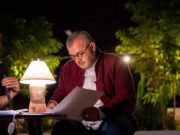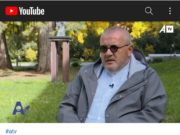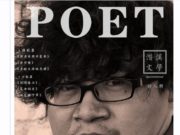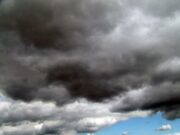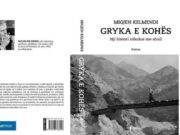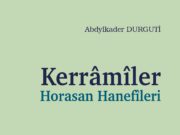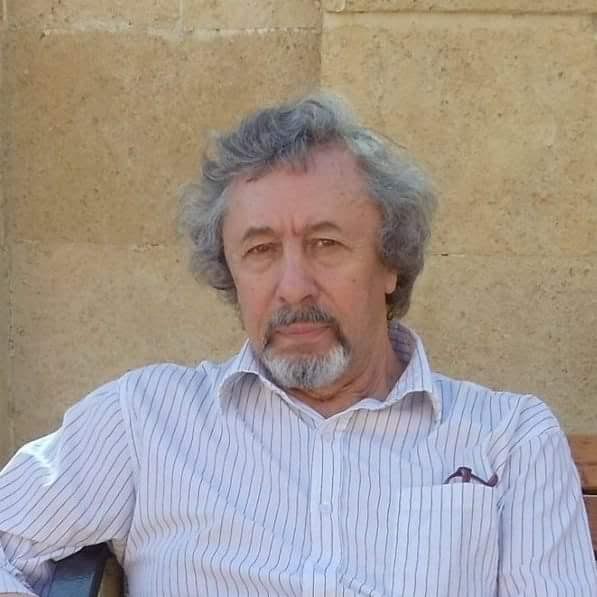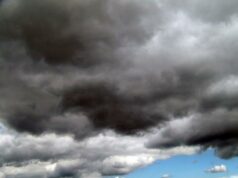Vyacheslav Glebovich Kupriyanov was born in Novosibirsk in 1939. His first published works were translations of poetry from German (Hölderlin, Novalis, R.M.Rilke, Hoffmannstal, B.Brecht, G.Grass, Enzensberger, Hans Arp, Erich Fried) and English (Walt Whitman, Carl Sandburg).
Kupriyanov studied technical sciences in the High Navy School in Leningrad (1958 – 1960), and graduated in 1967 from the Moscow Foreign Language Institute (now Linguistic University), section of matematical linguistics and German (1967). He is a freelance writer, a member of the Moscow Writers Union, and a member of the Serbian Writers Union.
His published works include:
Poetry: “First person”, 1981 (Moscow), “Life goes on”, 1982 (first free-verse poetry published in Russia after the Second Wolrd War); “Homework”, 1986; “Echo”, 1988, 1989; “Poems”, 1994; “THE BEST TIME”, 2003.
Prose: “The shoe of Empedokles” (Novel), 1996, 2000 (Moscow), and short stories (including science-fiction) published in various magazines.
His translated works include:
In English: “In Anyone’s Tongue” (London & Boston: Forest Books, 1992)(dual text, Russian and English).
In German: “Moist manuscript” (“Das feuchte Manuskript”, Roman), 1991, Alkyon Verlag, “Der Schuh des Empedokles”, 1994, 1999; Poetry: “Sober echo”, 1986, (LCB-Edition); “Challenge to flight”, 1990; “How to become a giraffe”; 1991, 1999; “Monument to the Unknown Coward”, (Delp Verlag, 1990); “Eisenzeitlupe”, 1996, (awarded first place prize in Südwestfunk-Bestenliste, 1997); »Short Stories of Eurasia«, Alkyon Verlag, 2001,
“Mitlesebuch 96”, Aphaia-Verlag, 2006.
In Bulgarian: “Unknown Wonder”, 1987; “The Oase of Time”, 2000.
In Polish: “The Circle of life”, 1986.
In Serbian: “Singing lesson”, 1987; “Report on an angel” (awarded Library of European Literature Prize, 1988). “The Heaven of earth”, “Branko-Radicevic-Prize” – 2006.
In Dutch: “The feelers of earth”, Leiden, 1988.
In Tamil (Sri Lanka): “Modern poems”, Colombo, 1988.
In Macedonian: “Singing and thinking lessons”, Struga, 1999.
Address: 121552 Moscow, Akad. Pavlova-Str. 40, app. 111
Telephone: 007499-141 83 61, mob. 7 926 615 0555
Email address: Kuprianov@web.de viacheslakupriyanov@yandex.ru
http://www.stihi.ru/author.html?kupr
www.erata.de/autoren/kuprijanow
Critic and poet Valery Lipnevich wrote that „Kupriyanov’s verses are fairy tales for adults – tiny myths that represent a starting amalgamation of knowledge and fancy, irony and melancholy, as well as elegance and simlicity of spirit“
Poet Boris Slutsky assered that Kupriyanov combines „the Russian tradition with the manner of Bertolt Brecht and his school“.
In critic G.Filippov’s opinion, Kupriyanov „revives daily existens in contemporary philosophic poetry“ and demonstrates „a stand of paradoxical intellectuality“.
Poet Grigory Pozhenyan regards Kupriyanov’s poetry as „a fascinating syntesys of lyricism and philosophy. He suggested not only free verse but, in actuality, a new way of thinking”.
Viacheslav Kupriyanov (b. 1939)
Вячеслав КУПРИЯНОВ
ЧУДО МИРОЗДАНИЯ
Некто по имени Го никогда не ложился днем, а ночью его невозможно было заставить встать ни по какому поводу и никакими силами. Он и от прочих требовал четкого режима, отчего с неприязнью говорил о ночных сторожах, которых, впрочем, в лицо никогда не видел.
Объяснял он свою принципиальность вселенскими принципами:
Когда на одной половине круглой Земли все стоят, а на другой лежат, то возникает соответствующий перевес, заставляющий планету вращаться.
Чтобы вращение не прекращалось, стоящие на одной из сторон должны вовремя лечь, а лежащие на другой стороне должны поспеть к этому времени встать. Таким образом, все жители планеты получают равную возможность любоваться солнцем.
Заблуждение Го сейчас для многих кажется очевидным. Но его непоколебимая вера в значительность человеческого существования и в планетарную мощь суточного распорядка вызывает восхищение и по сей день, когда его уже давно нет среди нас и он, судя по всему, не принимает деятельного участия в земном круговороте.
Translated from the Russian by Alex Cigale
THE FIRST MIRACLE OF CREATION
A certain man by the name of Go would never lay down in the daytime, and it was impossible for anyone to get him up, by any means or for any reason, at nighttime. And, he would also demand similar discipline from others and, because of this, would often speak with derision of night watchmen whom, by the way, he never had the occasion to have met personally.
He would explain his principled stance by referring to universal propositions:
When on one half of our round planet everyone is standing and, on the other half, everyone is lying down, then, a corresponding imbalance ensues which forces the Earth to rotate around its axis.
In order that this revolution not cease, those who are standing on one side of the planet must go to bed in a timely fashion, and those lying down on the other side must take care, by this time, to have risen out of bed. In this fashion, all our planet’s inhabitants obtain an equal opportunity to marvel at the sun.
By now, Go’s erroneous conception has become evident to all. But his unwavering faith in the significance of human existence and his devotion to the planetary force of daily routine evokes adminration, even to this day, when he is no longer among us and, according to all appearances, no longer plays an active role in our planet’s diurnal turning.
ВТОРОЕ ЧУДО МИРОЗДАНИЯ
Однажды император Хо Лигань решил совершить восхождение на гору Пэньлай, чтобы испытать заморское переживание – катание на горных лыжах. При восхождении он обратил внимание на поразившую его вещь: чем выше к солнцу и чем дальше от земли, тем холоднее. Тогда он пришел к выводу, что истинным светилом является Земля, ее тепло уходит в небесный купол, там и образуется яркое отражение, которое мы именуем солнцем.
Сопровождавшие императора придворные астрономы признались, что так оно и есть, но об этом не следует говорить народу, чтобы не расстроить международные отношения со Страной Восходящего Солнца.
Translated from the Russian by Alex Cigale
THE SECOND MIRACLE OF CREATION
Once upon a time, Emperor Hu Ligan resolved to undertake an ascent of Mount Pinhead, in order to experience a foreign delight – a peregrination on skis. On the occasion of his ascent, his attention was drawn to a thing he had found remarkable: the closer one got to the sun, and the farther away from the earth one climbed, the colder it got. It was then that he came to the conclusion that the true source of light was the Earth, and that its warmth rises into the heavenly dome, where that shining reflection forms that we have called the sun.
The court astronomers who had accompanied the Emperor acknowledged that this was indeed so, but that this discovery aught not be disclosed to the people, so as not to upset their cordial relations with the Land of the Rising Sun.
ЧУДО ПЛАМЕНИ
Подъезжая к незнакомому городу, некто путешественник увидел замечательное зарево на горизонте.
– Что это такое, – спросил он попутчиков, видимо, более сведущих, так как они не придавали зареву никакого значения.
– Это жгут свежие газеты, – отвечали ему, – в этом городе бытует поверье, будто правда в огне не горит, поэтому читают только то, что остается после сожжения.
– А разве что-нибудь остается? – удивился путешественник, скорее всего чужестранец.
– Практически ничего, – ответствовали ему, но горящие иероглифы дают столь причудливое пламя, что его полыхание заменяет местным жителям лицезрение истины.
После такого разъяснения путешественник не стал выходить на этой станции для покупки свежих газет, дабы оставить городу необходимые искры для насущного любования истиной.
THE MIRACLE OF THE FLAMES
Approaching a town unfamiliar to him, a certain traveler was met by a fantastic glow on the horizon.
What is this, he asked his fellow companions on the train, who, it would seem, where more enlightened than he, in that they confered on this glow no particuar attention.
They are incinerating the morning papers, they replied to him. In this town, a popular belief prevails that the truth does not perish in the flames, so that they will only read that which remains after the burning.
And is there anything left? the traveler, a foreigner it would seem, uttered in astonishment.
Practially nothing, they responded, but as they burn, the hieroglyphs produce such a wondrous flame that gazing at them while they are blazing up replaces for the local inhabitants their meditation upon the truth.
After this explanation, our traveler decided not to detrain at this station to purchase the day’s newpapers, so as to leave unperturbed, as it were, the sparks necessary for this town’s everyday deliberations upon the essential truths.
ЧУДО С КОЛЕСАМИ
Когда жена Уй Юя родила уже второй велосипед, он пришел в неописуемое расстройство. Он кричал:
– Жена Лу Пяня рожает только самые настоящие мотоциклы! Иногда даже с коляской, когда ждет двойню.
Уй Юй разнес бы в гневе свое убогое жилище, но, к счастью, он был посажен на велосипедную цепь. Он только со скрипом вращал свои тележные колеса, которые были у него вместо рук, а также и вместо ног, которыми угрожать он не мог, поскольку он на них опирался.
THE MIRACLE OF THE WHEELS
When Uii Yu*’s wife had given birth to her second bicycle, he succumbed to an unimaginable affliction of the senses. He would yell:
Te Rash’s wife bears only the most prized motorcycles! Sometimes, even ones with a side carriage, when she is expecting twins.
Uii Yu would have, in his wrath, smashed to pieces his wretched abode, but, to everyone’s great fortune, he had been sitting on a bicycle chain. All he managed to do was rotate his creaking cart wheels, which he possessed instead of arms, and for his legs also, so that he was unable to strike out even with these, inasmuch as he depended on them to bear his weight.
ЧУДО МОЗГА
Великий ученый Чао Чуш перевернул всю мировую науку о человеке.
Центром же нового учения являлась идея, что надо головной мозг превратить в спинной. Эволюция пошла неправильно, надо ее силами науки и при помощи культуры исправить.
Вначале все шло как надо, развивался спинной мозг и делал спинномозговое существо все длиннее и длиннее, а это уже шаг к потенциальному бессмертию.
Посмотрите на дождевого червя – его разрежешь лопатой, а он все шевелится! Некоторые умники спрашивали Чуша, а зачем же червя лопатой резать? Чуш им отвечал – вот это хороший вопрос! Не будь головного мозга, не появилось бы и лопаты.
Но вот эволюция пошла неправильным путем, спинной мозг стал запутываться, образовался узел, он-то и дал начало пресловутому головному мозгу.
Нет бы этот узел распутать, а тут еще и череп возник, не так просто стало к мозгу подобраться. Кроме того, поверх черепа образовалось лицо, на котором стало появляться необщее выражение.
А ведь если распутать головной мозг, то искомым линейным существом можно несколько раз обернуть Земной шар как по экватору, так и по меридианам.
Любопытно, что страны, расположенные по экватору, не принимают участия в разработке проекта Чао Чуша, они не хотят в недалеком будущем спотыкаться о свой экватор.
Страны, расположенные вдоль меридианов, очень заинтересованы в исполнении проекта. Это видно уже по тому, что там чудовищно возросли цены на обыкновенные лопаты.
MIRACLE OF THE BRAIN
The great scientist Rao Bish upended the entire world of science.
The central notion of his teaching was the idea that the cerebral brain must be transformed into a spinal one. Evolution had developed erroneously, and it must be corrected by the collective efforts of science and the helping hand of culture.
At first, everything proeeded according to plan, and the spinal brain developed and produced a dorsal-brained being that grew progessively more elongated, and this was already in itself a step towards immortality.
Look at the lowly earthworm – you can cut him with the blade of a spade, and he will continue to wriggle! A number of wise men would ask Rao Bish, what reason could there possibly be for splitting a worm with a spade? Rao Bish replied to them – that is an excellent question! Had there been no cerebral brain, there would never have been such a thing as a spade.
But evolution had assumed the wrong track, and the dorsal brain, growing confused, formed a knot, which is what gave rise to the notorious cerebral brain.
It would have been well to untangle this knot, but then there also formed the skull, and it became more difficult to gain access to this brain. And besides, over this skull formed a face, on which the particular individual expressions made their appearance.
For if we were able to untangle the cerebral brain, then the linear being so produced would encircle the Earth several times over, along the equator, as well as along the meridians.
It is interesting to note that the nations located along the equator are not taking part in the implementation of Rao Bish’s project, not wishing to, in the near future, stumble over their own equator.
Nations located along the meridians, however, are highly intrested in the execution of this project. This is evident in that among them, the prices for commonplace shovels have already risen sharply.
ЧУДО ЛЕСА
Когда в Срединном Царстве исчезли все деревья, поэты-даосы обвинили в этом чиновников-конфуцианцев, утверждая, что деревья пошли на бумагу для отчетов об охране леса.
Чиновники в свою очередь обвинили поэтов, утверждая, что все деревья пошли на бумагу для стихов о красоте леса.
– Иероглифы наших стихов столь совершенны, что потомки смогут представить себе по ним, как изумительно выглядел незапамятный лес!
– Иероглифы наших отчетов не менее совершенны, и они красноречиво говорят о насущной пользе незабвенного леса!
И только лесорубы не оставили после себя никаких следов, так как они были безразличны к грамоте и даже деревья воспринимали как бессмысленные иероглифы.
THE MIRACLE OF THE FOREST
When all the trees in the Middle Kingdom had vanished, the Daoist poets accused the Confucian civil servants of being responsible, asserting that the trees had been cut down for paper necessary for their reports on the preservation of the forest.
The civil servants, in their turn, accused the poets, asserting that all the trees had beed used up on their poems about the forest’s unmatched beauty.
The ideograms of our poems are so perfect, that our descendants will be able, with their assistance, to see how magnificent the forest primeval had looked!
The ideogams of our reports are no less perfect, for they eloquently speak volumes of the impertaive utility of the unforgetable forest!
And only the lumberjacks had left no recorded traces of their prolific activity, inasmuch as they were entirely indifferent to writing, and perceived even the trees to be a specie of meaningless ideogram.
THE MIRACLE OF PHILOSOPHY
The philosopher who had taught that everything is an all-engulfing and eternally burning fire, by the decision of cold reason and cool heads, was condemned to be burned for his heresy.
A huge bonfire was lit, and the philosopher, prodded forward by an experienced executioner and the servile, though not particularly enlightened public, walked into the flames. When the bonfire went out, the throng, to their consternation and amazement, saw the unharmed, but smoked and covered head to foot in soot philosopher, so that on this foreground, his smile appeared particularly dazzling.
He’s a nigger! Someone exclaimed. Lynch him!
But instead, they decided to report this unseemly miracle to their ruler, who was reputed to be a wise man.
Drown him immediately! the wise man commanded.
They amicably escorted the philosopher to the river and tossed him in the water. The water started to hiss and emitted a column of steam, almost scalding the curious, who had started throwing stones into the water for good measure.
After this, the philosopher was never again seen.
Your Highness, how did you know that the heretic had to be immediately drowned? they asked the ruler somewhat later on, on the evening news.
Such is the dialectic, the wise ruler replied, gazing down at his watch — the conflict of opposites.
The news anchor, wanting to extend the conversation with the great man, asked: Perhaps we needn’t have fanned the flames in the first place?
Without it, the water may not have began to hiss, the ruler found something witty to say in reply, and everyone who saw and heard this proceeded to snicker with delight.
THE MIRACLE OF THE CAVALRYMAN
A certain cavalryman arrived on foot to attend a concert and for this reason was slightly delayed and so was obliged to sit in the rear rows. It would have been better had I saddled up my horse, he thought to himself. When the music began to play, he could barely even see the musicians through the dense throng of heads of those seated in front of him. If I were sitting on my horse right now, he thought, I would be able to see everything. But then he remembered that he did have his saber with him, and in one quick movement he withdrew it and chopped a clearing through the heads that interrupted his line of vision; now, with all of these beheaded, he could see everything much better. And both the music and the musicians were to his liking, but he was even more pleased with his own clear-cut resolution of the problem, so that he even thought that perhaps, he should slice off the ears of the remaining public, so that he could enjoy the music all to himself. But by then, the music had already soothed his savage breast, and he did not act out on this thought, but proceeded instead to listen to the concert to the end, along with the other lovers of music still present.
Viacheslav Kupriyanov (b. 1939) is considered to be one of the founders (along with Vladimir Burich and Arvo Metz) of contemporary Russian free verse. His work has appeared in many of Russia’s “thick journals,” including in Novyi Mir, Druzhba Narodov, Znamya, NLO, etc., and he was awarded the Ivan Bunin Prize in 2010. A translator of German poetry, he has published a Selected volume of Rilke in Russian translation. Although his work has appeared in some 40 of the world’s languages, he is perhaps best known in German, and this would constitute the most substantial publication of his work to date in English.
Alex Cigale’s English language poems have appeared in Colorado Review, The Common Online, and The Literary Review, and his translations in Harvard Review Online, Kenyon Review Online, The Hopkins Review, New England Review, PEN America, TriQuarterly, World Literature Today, Words Without Borders, and elsewhere. A 2015 NEA Literary Translation Fellow for his work on the poet Mikhail Eremin, he edited the Spring 2015 Russia Issue of Atlanta Review and is Plume‘s Contributing Editor for Translation. His first full book, Russian Absurd: Daniil Kharms, Selected Writings, is just out in Northwestern University Press’s World Classics series.
Vyacheslav Kupriyanov
Translated by Dasha C. Nisula
CONTEMPORARY MAN – 2
Contemporary man
extends himself through the wire
together with the murmur of the sea
jams himself into the shell of the telephone
compresses himself
seeks immortality
on a phonograph record
becomes a sea monster
a prisoner of the television aquarium
he becomes more portable
more compact
more contemporary
already he can be switched on
switched off
made louder softer
he doesn’t see you
doesn’t hear you
he doesn’t know you
“Modern Poetry in Translation”, Series Three, Number 6, 2006
HISTORY OF MAIL
For 300 years
Russians claimed
oppression by the Mongols
who it turns out
were just delivering the mail
for 300 years
Russia received letters
it couldn’t read
that’s why Moscow
had to be burned intermittently
in order to free itself from the darkness
of unread letters
finally Ivan the Terrible
went East
took Kazan and began
to send letters West
to the runaway Prince Kurbskoy
these terrible letters
were answered by Peter the Great
from Holland overseas
then Catherine also the Great
arranged a connection with the better world
of Mr. Voltaire then Napoleon
the very Bonaparte in continuous burning
of Moscow helped introduce
the elegant French epistolary style
for nobility so as not to confuse
the common folk
too early with
freedom equality and fraternity
With better delivery of mail
Decembrists sent their letters
about reforming Russia
from Siberia to awaken
Herzen in London
they were answered by
Vladimir Ilych squinting his
farsighted Mongolian gaze
from Geneva from Zurich
then the October Revolution
came to pass
as an inevitable consequence
of Mongolian mail
as an Eastern
reply and a challenge to the West
in the next 300 years
something will come to us as a response
from the West
by electronic mail
“Modern Poetry in Translation”, Series Three, Number 6, 2006
Vyacheslav Kupriyanov
LANDSCAPE WITH POLYPHEMUS
All this is reflected:
Sisyphus is pushing his rock
Icarus is falling into the sea
Prometheus is chained to a cliff
while carelessly rollick
indifferent nymphs
and apolitical fawns
in ecstasy
of a fleeting life
all this is reflected
in the blood-shot
single eye of Polyphemus
that is just about to be gouged
by a wanderer
seeking his homeland
Odysseus
“Modern Poetry in Translation”, Series Three, Number 6, 2006
OPTIMISTIC GEOGRAPHY
North America
still hasn’t slipped
into South America
Asia Major
still hasn’t crushed
Central and Asia Minor
Europe still hasn’t fallen
through the Mediterranean
onto free Africa
Africa still
hasn’t been swallowed
by the Sahara
Icebergs of Antarctica
haven’t succeeded in
merging with the ice
of Greenland
Forces of gravity
still surpass
any
armed forces
The political map of the world
hasn’t been destroyed
by the physical map
“Modern Poetry in Translation”, Series Three, Number 6, 2006
***
Fairy birds
play with rain
they are like princesses on a pea
spinning on the flying drops
others as if on wire
try to sit
on the slant line of rain
there are some
which at breakneck speed
leap into the apertures of lightening
and appear
beyond the heaven
these are the most educated
the rain reminds them
of a cage
“International Poetry Review”, VOL .XXXIII, FALL 2007, №2 The University of North Carolina at Greensboro, NC 27402-6170, mismiths@uncg.edu
ODE TO TIME
Oh!
Oh, half past six!
Oh, quarter to seven! Oh, five to!
Oh, seven in the morning!
Oh, eight! Oh, nine! Oh, ten!
Oh, eleven, twelve, one!
Oh, lunch break! Oh, after-
noon nap! Oh, after
the afternoon
of the faun! Oh, the last news hour!
Oh, horror! Oh, supper hour! Oh,
the last straw! Oh, the last cloud
of dispersing storm! Oh, the last
leaf! Oh, the last day
of Pompeii! Oh, never!
Oh, after the flood! Oh, half past
eleven! Oh, five to!
Oh, midnight!
Oh, midday!
Oh, midnight!
Oh, hit! Oh, miss!
Oh, Moscow time!
Oh, Greenwich time!
Oh, for whom the bell tolls!
Oh, the hour strikes! Oh, the happy ones!
Oh, half past six!
Oh, half day!
Oh, half night!
Oh, five to!
“International Poetry Review”, VOL .XXXIII, FALL 2007, №2 The University of North Carolina at Greensboro, NC 27402-6170, mismiths@uncg.edu
RUSSIA’S DREAM
Russia sleeps in cold dew
and dreams
that it is America:
its chatterers are congressmen
its loafers are the unemployed
its hooligans are gangsters
its drunkards are drug addicts
its profiteers are businessmen
its Russians are Blacks
and it must fly to the Moon
Russia awakens in cold sweat
everything appears to be in place
chatterers are chatterers
loafers are loafers
hooligans are hooligans
Russians are Russians
only it must land
in the right place
and Russia again falls asleep
and stirs a Russian idea –
that America sleeps and dreams
that it is Russia
TO THE STATISTICIANS
Be more interested
in the quantity
of souls
per head
of population
the quantity of brains
per capita
the quantity of ideas
per brain
the quantity of opinion
per idea
the quantity of rumors
per opinion
the quantity
of lies
per quantity
of truth
be more interested
in conversion of quantity
into quality
Vyacheslav Kupriyanov
SONG OF ODYSSEUS
When my ship moors at the shore,
a poem will come ashore with me,
To which before only the sea was listening,
as it was competing with the call of the sirens.
It will have only soft vowel sounds,
That sound like this in pale translation
From the language of roaming to the language of mooring:
I love you with the hoarse cry of the seagulls,
With the scream of the eagles, flying toward the scent of Prometheus’ liver,
With a thousand year silence of the sea turtle,
With a click of the cachalot that wants to be a roar,
With a pantomime, executed by the tentacles of the octopus,
Before which all seaweeds stand on end.
I love you with all my body coming from the sea,
With all its rivers, tributaries of the Amazon and the Mississippi,
With all the deserts, considering themselves seas,
You hear their sand sift through my desiccated throat.
I love you with all my heart, lungs and the medulla,
I love you with the earth’s crust and the star-studded sky,
With the fall of the waterfalls and conjugation of verbs,
I love you with the invasion of Europe by the Huns,
With the One-Hundred year war and the Mongolian Horde,
With the uprising of Sparta and the Big migration of people,
With Alexander’s column and the Tower of Pisa,
With the speed of the Gulf Stream to warm the North Pole.
I love you with the letter of the law of gravity
And the sentence of the death penalty,
To the death penalty through the eternal fall
Into your bottomless Bermuda triangle.
Vyacheslav Kupriyanov
POETRY
Poetry
is natural
like a window in a house
artificial
like the glass in a window
unexpected
like the world beyond the window
regular
like science
appearing at the juncture
of rising and
declining knowledge
MASS MEDIA
Global
guff
traverses
the great ocean
Intercontinental
nonsense
runs between
the east and the west
Super highway
misunderstandings
cross
all the borders
The world’s sense
of moderation
is in transatlantic
trance
TRANSLATION OF POETRY
The flash of the birds’ flight
Translates to somnolent scurrying of the fish
And back
From the ancient language of fish
To the contemporary syntax of the birds’ flight
And so on
From the dark language of the ocean
To the clear language of the sky
And back
Translated by Dasha C. Nisula
SONG OF THE WOLF
I am the wolf wolf
I am the winter night wolf wolf
My footsteps serve the spirit of snow
I am the master of crackling someone’s bones
It was I who blew freezing stars
Upon your window glass
While you slept in a dream
I howled the full moon into the sky
When you still couldn’t look up at the sky
It was I who taught you to fear evening trees
It was I who charmed you from dangerous games with one’s shadow
It was I who prompted you to be in a pack
I am the wolf wolf
I am the winter night wolf
I am going from you into your winter tale
Translated by Dasha C. Nisula
SONG OF THE TIGER
I am the tiger
I am the thunder of taiga and the lightening of the jungle
Once when there still was a lot of fire
And still very little water
I came out of the fire alive
And began to grow plants around me
So they would reflect in my green eyes
But you should not meet my gaze
For my gaze is set at the edge of my teeth
And do not follow my tracks
For I am always behind you
And I despise man
For he is only the master of domestic cats
THE DANCING BEAR
I put my left foot forward
I put my right foot forward
I put my left foot back
I put my right foot back
I am pretending I am going forward
I am pretending I am going back
You would say these were paws
I would say they are hands
I spread my hands
I put my hands together
I raise the wind
I lower the wind
Under my feet the damp earth rotates
But it doesn’t disappear
The sky spins above my head
But it doesn’t disappear
The trees go around me
But they cannot entwine me
The birds are silent while I dance
Afraid that I might take flight
The grass grows while I dance
Afraid that I might fall
The birds are silent but not without reason
After all I might start to sing
And the grass grows without reason
After all I won’t fall I am not a man
Translated by Dasha C. Nisula
* * *
On a gray day
I saw between the clouds
an amazingly blue
patch of the sky –
o what dispersion of light!
o spectrum analysis!
o my delicate retina!
o cones, responsible for perception of color!
o still not faded
crystal of my eye!
o optic nerve!
o gray matter!
o gentle strip of cerebral cortex
blissfully placed
a patch of blue sky!
o amazing assurance
in the possibility of relating
all this
in discreet words
Translated by Dasha C. Nisula
Ecology
From the experience of transformation
of nature
I realize that it’s harmful
to dry up the marshes
of unpleasant thoughts
for nature’s balance
may be destroyed
with the extinction of wilderness
that hovers above mental
quagmire
what may evaporate
are the running waters of clear thinking
from where computers
derive rare and clear thoughts
of a generation wishing to survive
“Absinthe”, New European Writing, № 10, 2008, absinthnew@aol.com
***
Don’t frighten the moon
when at the end of the night
a sleepwalker appears
Don’t ask him
where he is from ore where he is going
what he needs
at the end of the night
what he dreams
at the end of his life
O how dangerous
are the moment
when in light
we are visible
by everyone
“Absinthe”, New European Writing, № 10, 2008, absinthnew@aol.com
Translated by Dasha C. Nisula
Hippo-po-poem
One thing that we learned in our time full of shame.
We all learned to cringe when we hear evil’s name:
And how can you blame us
It’s justly infamous–
Tsar Hippo-po-tamus!
He lived off our labor for many long years.
He lived off our hippo-po-blood, sweat and tears
While he hippo-po-wined and he hippo-po-dined
And made merry on hippo-po cushions reclined
He grew rich making hippo-po-thetical deals
Spouting hippo-po-hype in his hippo-po-spiels.
Thus he soared to the top of the hippo-po-heap.
While we, his poor subjects, did nothing but weep.
We were treated like zeros—to him our true worth
While he thought himself hippo-po-hub of the earth.
On his hippo-po-bio they wrote boring tomes
His hippo-po-portraits disfigured our homes.
And hippo-po-paeans assaulted our ears.
As his hippo-po-flunkies led hippo-po-cheers
Hip-hippo-hoorah, hip-hippo-hooray
Give thanks for our hippo-po-era today.
True hippo-po-crits were assured of success
While back-sliders were punished and made to confess
And those who resisted such hippo-po-nosis.
Were sent to locked wards to treat hippo-psychosis.
So you see we had reached hippo-bolic extremes
Which luckily, don’t last forever, it seems.
Kind fate put an end to our hip-tatorship
We heard that the hippo was dead of the grippe.
He was dead of the grippe, or the hippo-po-flu
Whatever, we’d never see his like anew.
Of the hippo-po-plague we were finally rid
And no other we’d ever let do what he did.
Yet rumors now claim he is not dead in truth
But lives under an alias — Tsar Be-he-muth.
Translated from the Russian
by Lydia Razran Stone
Tale of a Red Balloon“
Once we possessed a red balloon
We filled it up with smoke
Forgetting, what we’d learn too soon:
A red balloon’s no joke!
It slipped our grasp and struggled free
Then headed for the sky
But got snagged in a maple tree
The tallest one nearby
We shook the tree to knock it down
And soon our hands were raw
Until some genius went to town
And brought us back a saw.
We sawed that tree for half the day
Expecting it to fall
But red balloons do not obey:
It shot up tree and all
Up through the clouds we watched it go
Defying Newton’s law
While we, abandoned, stood below
Still clutching that fool saw.
Translated from the Russian
by Lydia Razran Stone
The Egyptian pyramids
The Egyptian pyramids
those bunkers
f
or state mummies
raised up
against cataclysm
poor boys
they don’t realise
that their curious descendants
long ago made them exhibits
in defenceless museums
Translated from the Russian
by Steve Holland
Viacheslav Kupriyanov
***
During my long life
the night’s darkness
remains unchanget
but it does seem as if
the stars have grown
more interesting
in one another
***
A man with a knife
does not care
what thoughts
are ripening
in the little head
of an onion
whey then tears
***
waiting
for a flaming life
heroes
sleep courageously
in a box of matches
***
By the order of a brush
I draw you
life size
standing
behind the darkness
of horizons.
The vacuum
between as
is sculpted
by the gravity of our lips:
a word is crated,
a word
uniquely necessary
which can be pronounced
only by two.
The Twilight of Vanity
Every night
the dead one
lifts the lid of the coffin
and checks with the touch of his fingers:
is his name
still on the tombstone?
Translated by Ivan Burkin
AN EPIDEMIC . . .
An epidemic
of freedom
the most dangerous
carriers of bacilli are
people,
who’ ve been sick
with love
Translated by Albert C. Todd
***
The ancient history sank
into oblivion
The Middle Ages
are a well-rounded period
The New
Times
are
fla-
shing
by
Translated by Vicky Reuter
Viacheslav Kupriyanov
Critic and poet Valery Lipnevich wrote that „Kupriyanov’s verses are fairy tales for adults – tiny myths that represent a starting amalgamation of knowledge and fancy, irony and melancholy, as well as elegance and simlicity of spirit“
Poet Boris Slutsky assered that Kupriyanov combines „the Russian tradition with the manner of Bertolt Brecht and his school“.
In critic G.Filippov’s opinion, Kupriyanov „revives daily existens in contemporary philosophic poetry“ and demonstrates „a stand of paradoxical intellectuality“.
Poet Grigory Pozhenyan regards Kupriyanov’s poetry as „a fascinating syntesys of lyricism and philosophy.
He suggested not only free verse but, in actuality, a new way of thinking.
Sprache: Albanisch (Gesangsunde) (Урок пения)
Mësimi i këngës
Njeriu
E shpiku kafazin
Para se të shpikte
Flatrat
Në kafaze
Flatrat këndojnë
Për lirinë
E fluturimit
Para kafazeve
Ata që nuk kanë flatra
Këndojnë
Për lavdinë e shufrave të kafazit
Translated by Anton Papleka
Sprache: Albanisch
Оdisseus Lied
Kënga e Uliksit
Kur të kthehet anija ime
Edhe kënga ime do të zbresë në breg
Kënga ime që e dëgjuan vetëm dallgët
Që kishte si rivale vetëm këngën e sirenave
Ajo do të vijë flurore me zanore uji
Që kumbojnë kështu në përkthimin e zbehtë
Nga gjuha e shtegtimeve në gjuhën e portit
Unë të dua me klithmën e ngjirur të pulëbardhave
Me klithmën e zhgabave që i josh mëlçia e Prometeu
Me heshtjen mijëvjeçare të breshkave të mëdha
Me zhurmën e kashalotit që do të donte të ulërinte
Me pantomimën e krahëve të likurishtes
Që sapo e trazoi befas paqen e algave
Të dua me tërë trupin tim që shpëtoi nga detet
Me Amazonën dhe Misisipin dhe të gjitha degët e tyre
Me shkretëtirat të cilave u duket vetja dete
Dëgjo rërën se si i rrokullis dallgët mbi grykën time
Të dua me tërë zemrën time dhe me mushkëritë e mia
Me koren e tokës dhe me qiellin plot yje
Me ujëvarën dhe me zgjedhimin e foljeve
Të dua me vërshimin e hunëve në Europë
Me Luftën Njëqindvjeçare dhe me zgjedhën Mongole
Me revoltën e Spartakut dhe me shtegtimin e popujve
Me kolonën e Aleksandrisë dhe me kullën e pjerrët të Pizës
Me dëshirën e Gulf Straem-it që nxiton drejt Polit
Të dua me ligjin e tërheqjes universale
Dhe me ligjin e dënimit me vdekje
Me dënimin tim për të rënë pambarimisht
Në honin e trekëndëshit tënd të Bermudeve
Translated by Anton Papleka


